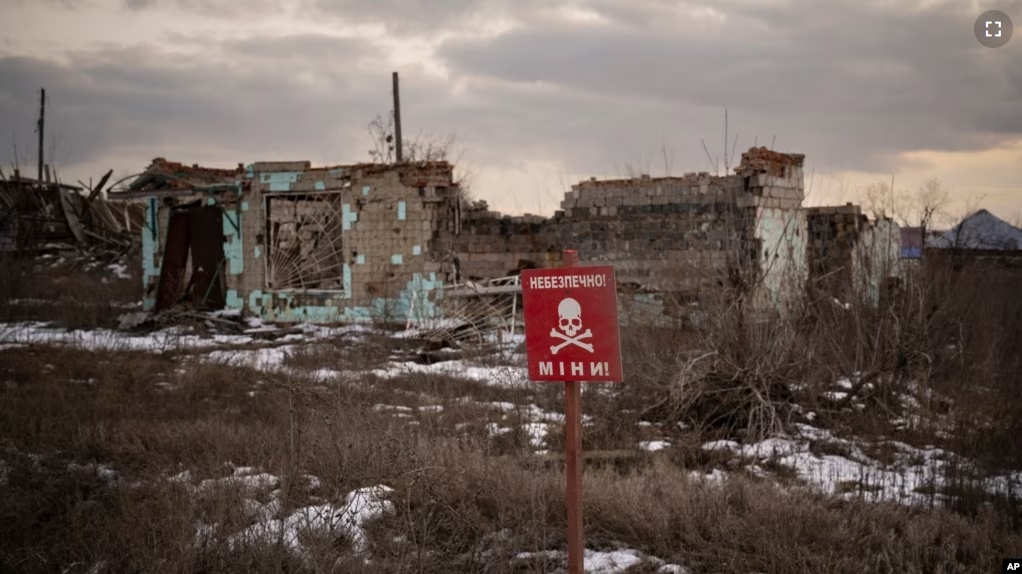An international report shows increased use of landmines in Ukraine and Myanmar led to sharp rises in casualties in those countries last year.
International Campaign to Ban Landmines created the report, called Landmine Monitor 2023. The Switzerland-based group provides research and monitoring services on world land mine use. The group is a coalition of non-governmental organizations supported by the group Human Rights Watch.
The devices studied in the report are known as anti-personnel mines. This means the mines are built to target humans, not tanks or other military equipment.
The report states that Russia “used antipersonnel mines extensively in Ukraine since its all-out invasion of the country in February 2022.” The document notes Russia is not part of an international treaty that bans the use of antipersonnel landmines. The anti-personnel mine ban agreement was completed in 1997. The United States is not a party to it.
The report also found evidence that Ukraine, which is part of the mine ban treaty, had used anti-personnel mines in and around the cities of Izium and Kharkiv. It said the mines were found as Russian forces battled Ukrainian troops in the areas.
The Campaign to Ban Landmines recorded 4,710 injuries and deaths in 2022 around the world. This was down from 5,544 casualties in the year before. But in Ukraine, the number of civilian casualties from landmines went from 60 in 2021 to about 600 in 2022.
Mark Hiznay is with Human Rights Watch and helped write the new report. He expressed concern about Russia’s use of landmines in its military operations in Ukraine. Hiznay said it was the first time since the mine ban treaty was approved that a country that is not part of the treaty, Russia, had used such weapons against a treaty member, Ukraine.
Hiznay said Russia began using landmines in 2014 in support of pro-Russian separatist forces in the disputed Donbas area of eastern Ukraine. “Russia has made extensive use of landmines in places like Afghanistan and Chechnya,” he said. Hiznay said he believed Russia had supplied 35 or 38 different countries with landmines over the years.
Ukraine has said it would look into accusations from a Human Rights Watch report. The report provided details of “numerous cases” of Ukrainian forces deploying banned anti-personnel mines in its war with Russia.
The report said 85 percent of casualties from landmines and “exploded remnants of war” last year were civilians. About half of the casualties were children. The highest number of casualties, 834, was recorded in Syria in 2022. This was followed by Ukraine with 608 casualties, and Yemen and Myanmar, which each recorded more than 500 casualties in 2022.
In Myanmar, Hiznay said the government has been using anti-personnel landmines since 1999. But that changed in recent years. “It is just bigger,” Hiznay said. “You have more use by the government forces and more use by various non-state armed groups.”
Currently, 164 countries have signed onto the mine ban treaty, which bars the use, storage, production, and transport of anti-personnel mines. The report said 30 states who are part of the treaty have cleared all mined areas from their territory since the treaty came into force.
I’m Bryan Lynn.
VOA’s Lisa Schlein reported this story. Bryan Lynn adapted the report for VOA Learning English.
__________________________________________
Words in This Story
casualty –n. a person who is injured or killed in an accident or war
monitor – v. watch something carefully and record the results
extensive – adj. covering or affecting a large area
remnant – n. a piece of something that continues to exist when the rest of that thing has gone
